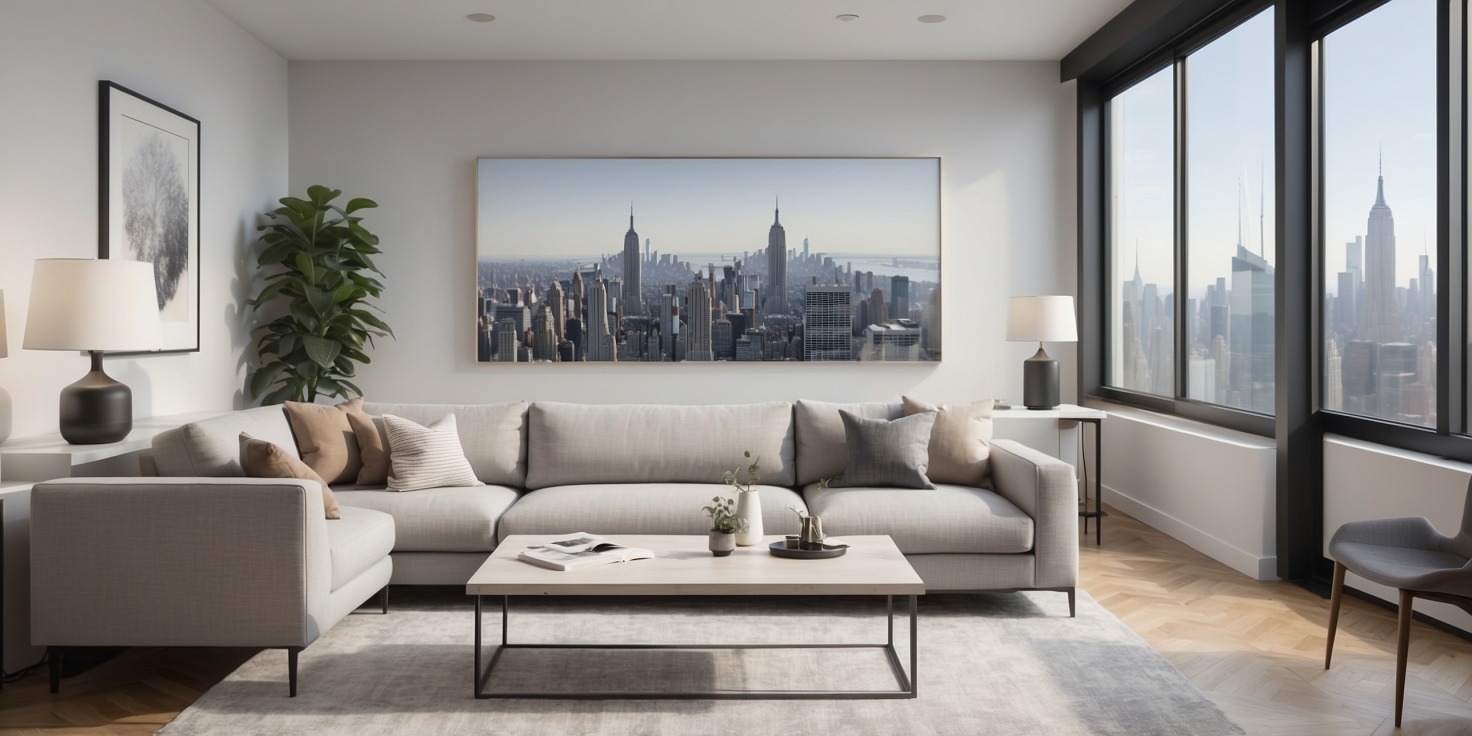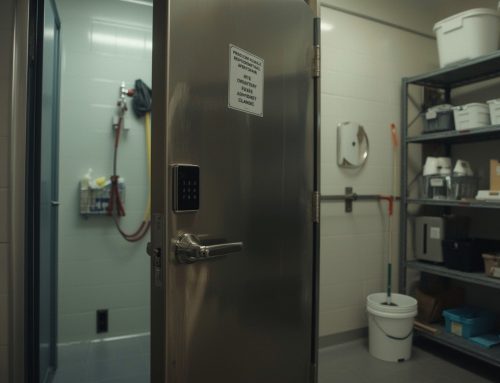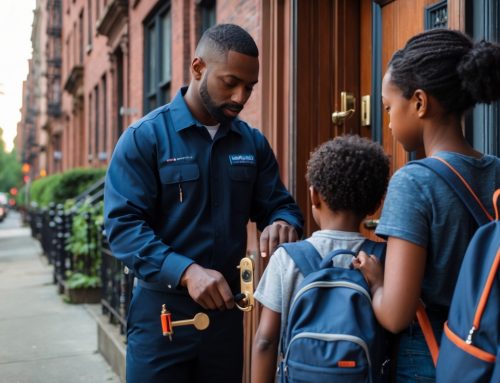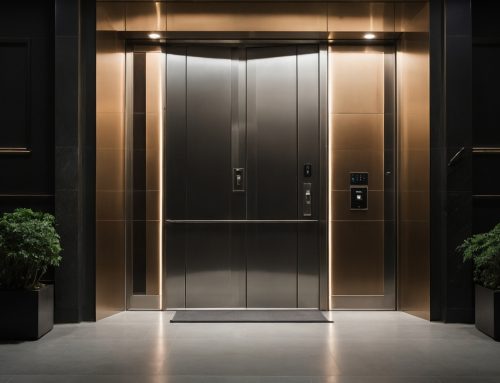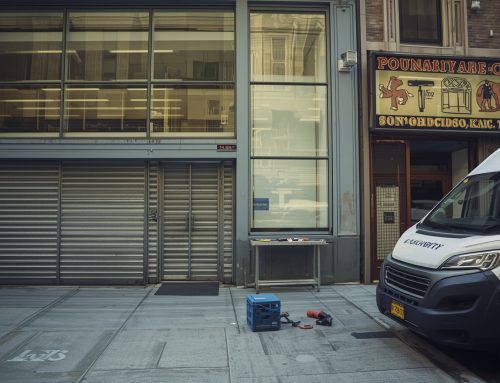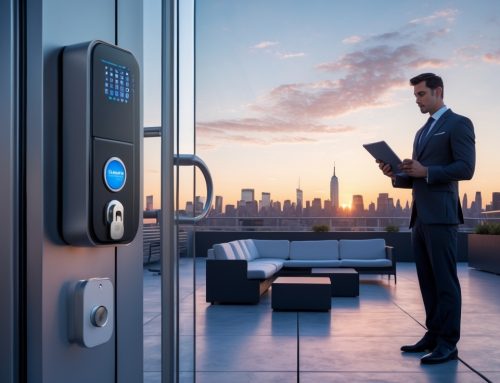When you’re preparing to sell or rent out your apartment in New York City, hosting an open house is a crucial step—but it also comes with security risks. With multiple strangers walking through your space, it’s essential to know how to secure your NYC apartment during open houses to protect your belongings and maintain peace of mind. From safeguarding valuables to reinforcing entry points, taking proactive steps can make all the difference. At iLocksmiths, we understand the unique security challenges that come with city living. Offering reliable 24/7 locksmith services across New York City, we bring over 11 years of experience in residential, commercial, and automotive locksmith solutions. Our fast response time and dedication to customer satisfaction have made us a trusted name in NYC locksmith services. Whether you’re a homeowner, real estate agent, or property manager, these expert tips will help you keep your apartment safe during every open house event.
Remove or Hide Valuables Before Showings
When preparing your NYC apartment for an open house, one of the most crucial yet often overlooked steps is ensuring that your valuables are either removed or securely hidden. Open houses invite a wide range of visitors, including potential buyers, real estate agents, and sometimes even opportunistic individuals with less-than-honorable intentions. While your real estate agent may be vigilant, it’s impossible to monitor every visitor at all times. Taking proactive steps to safeguard your belongings not only protects your property but also gives you peace of mind during the selling process.
Valuables can include a wide range of items—jewelry, electronics, personal documents, cash, collectibles, and even prescription medications. These items are not only financially valuable but often carry sentimental or sensitive importance. According to the National Association of Realtors, theft during open houses is a real concern, with agents reporting incidents ranging from stolen electronics to missing personal documents. In a bustling city like New York, where foot traffic is high and apartments are often compact, it becomes even more essential to be cautious.
Start by identifying what qualifies as a valuable in your home. Once you have a list, consider the best way to secure each item. Here are some practical steps you can take:
- Remove small valuables entirely from the premises. Items like jewelry, watches, and cash should be taken with you or stored in a secure location outside the apartment.
- Use a locked drawer or safe for items you cannot remove. Ensure the safe is either built-in or too heavy to be easily carried away.
- Secure important documents such as passports, social security cards, and financial records. Identity theft is a growing concern, and these documents are prime targets.
- Hide electronics and accessories. Laptops, tablets, and even gaming consoles should be stored out of sight or locked away.
- Remove or lock up prescription medications. These are often targeted during open houses and should be kept in a secure cabinet.
"An open house is not just a showcase for your home—it’s also an opportunity for someone to take advantage of your trust. Always err on the side of caution when it comes to your valuables."
In addition to physical security, consider enhancing your apartment’s overall safety with modern technology. Installing security cameras can act as both a deterrent and a means of evidence collection in case of any suspicious activity. Many homeowners in NYC are also turning to smart locks and alarm systems to monitor access during showings.
If you’re unsure about how to secure your apartment effectively, consulting a professional can make a significant difference. A trusted residential locksmith can assess your current security setup and recommend upgrades tailored to your needs. Whether you live in a high-rise in Manhattan or a brownstone in Brooklyn, personalized security solutions can help protect your home during the selling process.
For example, if you reside in areas like Park Slope or Midwood, where open houses are frequent and foot traffic is high, taking extra precautions becomes even more critical. These neighborhoods are popular among buyers, which means your apartment may see a higher number of visitors during showings.
According to a report by SafeWise, nearly 34 percent of burglars enter through the front door, often during times when the home is accessible, such as open houses. This statistic underscores the importance of not just locking your doors but also being strategic about what is visible and accessible inside your home.
For more tips on securing your home, you can explore resources from the New York Police Department’s Crime Prevention section or consult with local security experts. Additionally, websites like SafeWise (https://www.safewise.com/) and the National Crime Prevention Council (https://www.ncpc.org/) offer valuable insights into home security best practices.
Ultimately, while the goal of an open house is to present your home in the best light, it should never come at the expense of your personal security. By taking the time to remove or hide valuables, you can ensure that your open house is both successful and secure.
Secure Personal Documents and Sensitive Information
When preparing your NYC apartment for an open house, one of the most critical steps is ensuring that all personal documents and sensitive information are securely stored. Open houses invite a wide range of visitors, including potential buyers, agents, and sometimes even curious neighbors. While most attendees are genuinely interested in the property, it’s essential to take precautions to protect your identity and personal data from falling into the wrong hands. Items such as passports, social security cards, tax documents, bank statements, checkbooks, and medical records should never be left out in the open. These documents can be used for identity theft or fraud if accessed by someone with malicious intent.
Start by identifying all areas in your apartment where sensitive documents are stored. This includes desks, filing cabinets, drawers, and even kitchen counters where mail might accumulate. Once identified, gather all these items and store them in a secure location. A locked drawer, safe, or even a locked suitcase can provide a temporary but effective solution. If you don’t already own a safe, consider investing in one that is fireproof and tamper-resistant. For added security, you might want to store these items off-site with a trusted friend or in a secure storage facility during the open house period.
In addition to physical documents, be mindful of digital data. Laptops, tablets, and external hard drives should be locked away or removed from the premises. These devices often contain saved passwords, financial information, and personal photos that could be exploited if stolen. If you have a home office setup, ensure that all electronics are powered down and stored securely. Consider using password protection and encryption for any devices that must remain in the apartment.
Don’t overlook smaller items that can also pose a risk. Prescription bottles with your name and address, bills, and even personalized mail should be hidden from view. These items may seem insignificant, but they can provide enough information for someone to piece together your identity. It’s also wise to remove any visible calendars or planners that may contain personal appointments or travel plans, as this information can indicate when your home will be unoccupied.
For those living in high-traffic neighborhoods or buildings with multiple units, such as in Brooklyn or Queens, the risk of unauthorized access can be higher. In such cases, it’s beneficial to consult a professional locksmith to assess your apartment’s security. A reliable residential locksmith can recommend and install high-security locks, safes, and other protective measures tailored to your needs. If you’re located in areas like Midwood or Park Slope, you can also explore services specific to your neighborhood through providers like iLocksmiths Midwood.
Taking these steps not only protects your personal information but also presents your apartment in the best possible light. A clutter-free, depersonalized space allows potential buyers to envision themselves living there, which can positively influence their decision. By securing sensitive documents and valuables, you create a safer environment for both yourself and those visiting your home.
Use Smart Locks or Temporary Lockboxes
When preparing your NYC apartment for an open house, one of the most effective ways to enhance security is by using smart locks or temporary lockboxes. These modern security tools offer both convenience and protection, ensuring that only authorized individuals can access your property during showings. With the high volume of foot traffic that open houses typically attract, it’s crucial to maintain control over who enters your home and when. Smart locks allow you to grant temporary access to real estate agents or potential buyers without the need to duplicate physical keys. You can generate unique access codes that expire after a set period, reducing the risk of unauthorized entry.
Smart locks also provide real-time monitoring features, allowing you to track who enters and exits your apartment. This can be especially useful if you’re not present during the open house. Some models even integrate with mobile apps, giving you the ability to lock or unlock your door remotely. This added layer of control can offer peace of mind, especially in a bustling city like New York where apartment security is a top priority. Additionally, many smart locks are compatible with existing deadbolts, making installation simple and non-invasive.
Alternatively, temporary lockboxes are a practical solution for those who prefer not to install new hardware. These secure containers hold your physical key and can be mounted near your apartment entrance. Access is granted via a combination code, which can be shared with your real estate agent or trusted individuals. Once the open house is over, you can change the code or remove the lockbox entirely. This method is particularly useful for short-term listings or when working with multiple agents, as it eliminates the need to coordinate key handovers.
Both smart locks and lockboxes offer a level of flexibility that traditional locks cannot match. They are ideal for managing access during open houses, especially in neighborhoods with high foot traffic or in multi-unit buildings where security concerns are heightened. If you’re unsure which option is best for your situation, consider consulting a professional locksmith. At iLocksmiths, our team of experts can help you choose and install the right security solution tailored to your needs.
Moreover, integrating these tools with other security measures, such as surveillance systems, can further enhance your apartment’s safety. For example, pairing a smart lock with a video doorbell or security camera allows you to visually confirm who is entering your home. This is particularly beneficial during open houses when multiple visitors may be present at once. If you’re interested in a comprehensive security upgrade, security cameras can be a valuable addition to your setup.
In a city as dynamic and fast-paced as New York, taking proactive steps to secure your apartment during open houses is not just advisable—it’s essential. Whether you opt for a high-tech smart lock or a reliable temporary lockbox, these tools can significantly reduce the risk of theft or unauthorized access. By leveraging modern technology and professional guidance, you can ensure that your home remains safe while still being accessible to potential buyers.
Limit Access to Certain Rooms or Areas
During an open house in New York City, it is essential to maintain control over who can access specific areas of your apartment. While showcasing your home to potential buyers is important, protecting your privacy and valuables should be a top priority. Limiting access to certain rooms or areas can help prevent theft, damage, or unauthorized entry into private spaces. Start by identifying which rooms contain sensitive items or personal belongings, such as bedrooms, home offices, or storage closets. These areas often house valuables like jewelry, electronics, financial documents, or personal identification, all of which should be kept out of sight and reach.
One effective way to restrict access is by locking doors to rooms that should remain off-limits. If your interior doors do not have locks, consider installing temporary or permanent locking mechanisms before the open house. A professional residential locksmith can help you choose and install the right type of lock to secure these areas without compromising the overall appearance of your home. Additionally, you can use door stoppers or wedges to prevent doors from being opened, or place clear signage indicating that certain rooms are not part of the tour.
Another strategy is to use furniture or decorative barriers to subtly block entry to specific areas. For example, placing a large piece of furniture in front of a hallway or doorway can signal to visitors that the space is not accessible. While this method may not be as secure as a locked door, it adds a layer of deterrence and helps guide the flow of foot traffic during the showing.
If you have a home office or workspace with sensitive information or expensive equipment, it is especially important to secure this area. Remove any documents that contain personal or financial information, and store them in a locked cabinet or take them off-site temporarily. Computers, tablets, and other electronics should also be stored securely or removed from the premises. If you have a safe, use it to store smaller valuables during the open house.
For apartments with multiple levels or unique layouts, consider using baby gates or portable partitions to block stairways or hallways. These tools are easy to set up and remove, making them a convenient option for temporary access control. Additionally, they can be useful for directing visitors along a specific path, ensuring they only see the areas you want to highlight.
Communication with your real estate agent is also key. Make sure they are aware of which rooms are off-limits and instruct them to monitor guests during the open house. A responsible agent will help enforce your boundaries and ensure that visitors respect your space. If possible, have a second person present to assist with supervision, especially if you expect a high volume of foot traffic.
Installing surveillance equipment can also enhance your security during an open house. Visible security cameras can deter potential intruders and provide peace of mind by recording activity throughout your apartment. Even if you are not present during the showing, you can review the footage afterward to ensure everything remained secure.
Ultimately, taking proactive steps to limit access to certain rooms or areas during an open house is a smart way to protect your belongings and maintain your privacy. Whether you live in a high-rise in Manhattan or a brownstone in Brooklyn, these precautions can help you feel more confident about opening your home to potential buyers. For expert assistance in securing your apartment, consider reaching out through our contact page to speak with a trusted locksmith in your area.
Be Present or Use a Trusted Representative
When it comes to securing your NYC apartment during open houses, one of the most effective strategies is to ensure that someone trustworthy is present throughout the event. Whether you choose to be there yourself or appoint a reliable representative, having a watchful eye on your property can significantly reduce the risk of theft, damage, or unauthorized access. Open houses often attract a wide range of visitors, and while most are genuine potential buyers, there is always the possibility of opportunistic individuals taking advantage of the situation. Your presence or that of a trusted person serves as a deterrent to such behavior and allows for immediate action if anything seems suspicious.
Being physically present during the open house allows you to monitor who enters and exits your apartment. You can keep an eye on valuable items, ensure that doors and windows remain secure, and make sure that visitors respect your space. If you are unable to attend, consider asking a friend, family member, or even a professional property manager to represent you. This person should be familiar with your apartment and capable of identifying anything out of the ordinary. Their role is not only to observe but also to assist the real estate agent in managing the flow of visitors and answering basic questions, which can also enhance the overall experience for potential buyers.
In addition to monitoring the property, having someone present can help ensure that all security measures are properly followed. For example, they can verify that all doors are locked after the showing, that no personal items are left vulnerable, and that any security systems are reactivated. If you have a security camera system installed, your representative can also ensure it is functioning correctly and capturing footage during the open house. If you do not yet have a surveillance system, consider exploring options for security cameras to enhance your apartment’s protection.
Another benefit of having someone present is the ability to respond quickly in case of an emergency or unexpected situation. Whether it’s a maintenance issue, a medical emergency, or a security concern, having someone on-site ensures that problems can be addressed immediately. This level of preparedness not only protects your property but also demonstrates to potential buyers that the apartment is well-maintained and secure.
If you are working with a real estate agent, coordinate closely with them to establish clear guidelines for the open house. Discuss who will be present, what areas of the apartment are off-limits, and how to handle any incidents that may arise. It’s also a good idea to inform your neighbors about the open house so they can be extra vigilant and report any unusual activity. In tight-knit communities like those in Park Slope or Greenpoint, neighbors can be valuable allies in keeping your home secure.
Ultimately, the goal is to create a safe and welcoming environment for potential buyers while minimizing risks to your property. Your presence or that of a trusted representative plays a crucial role in achieving this balance. It provides peace of mind, enhances the professionalism of the showing, and ensures that your apartment remains secure throughout the process. By taking this proactive step, you are not only protecting your belongings but also contributing to a smoother and more successful sale.
Install Temporary Security Cameras
One of the most effective ways to enhance the safety of your NYC apartment during open houses is by installing temporary security cameras. These devices act as both a deterrent and a monitoring tool, helping you keep an eye on your property while multiple strangers walk through your home. Temporary security cameras are especially useful because they can be easily installed and removed without causing any damage or requiring permanent modifications to your apartment. They provide real-time surveillance and can be monitored remotely through your smartphone or computer, giving you peace of mind even if you are not physically present during the showing.
When hosting an open house, you are essentially inviting unknown individuals into your personal space. While most visitors are genuine potential buyers, there is always a risk of theft or property damage. Temporary security cameras can help mitigate this risk by recording all activity within the apartment. In the unfortunate event that something goes missing or is damaged, the footage can serve as valuable evidence for law enforcement or insurance claims. Moreover, the visible presence of cameras can discourage any ill-intentioned behavior, as people are less likely to commit a crime when they know they are being watched.
There are various types of temporary security cameras available, ranging from simple plug-and-play models to more advanced systems with motion detection, night vision, and cloud storage. Choose a system that fits your specific needs and budget. For example, if you want to monitor multiple rooms, opt for a multi-camera setup. If you are concerned about privacy, select cameras that allow you to disable recording when not in use. Many modern systems also offer two-way audio, allowing you to communicate with anyone in your apartment in real time.
Placement of the cameras is crucial for maximum effectiveness. Focus on high-traffic areas such as the living room, kitchen, and entryways. Make sure the cameras are positioned at an angle that captures a wide view of the room and are placed high enough to avoid tampering. Avoid placing cameras in private areas like bathrooms or bedrooms, as this could raise privacy concerns among visitors and may even violate local laws.
If you are unsure about which security system to choose or how to install it, consider consulting a professional. At iLocksmiths, we offer expert advice and installation services tailored to your specific needs. Our team can help you select the right equipment and ensure it is properly set up for optimal performance. We also provide ongoing support to address any technical issues that may arise during the open house period.
In addition to temporary cameras, it is wise to integrate other security measures such as upgraded locks and secure storage for valuables. Combining multiple layers of security will provide comprehensive protection and make your apartment less vulnerable to opportunistic crimes. If you are looking for a complete security solution, our residential locksmith services can help you reinforce your apartment’s entry points and ensure all locks are functioning properly.
Ultimately, installing temporary security cameras is a smart and proactive step toward safeguarding your NYC apartment during open houses. Not only do they provide real-time surveillance and evidence in case of incidents, but they also offer a sense of control and reassurance during a potentially stressful time. By taking these precautions, you can focus on showcasing your home to prospective buyers without compromising your safety or peace of mind.
Keep a Record of Visitors and Agent Activity
When hosting an open house in New York City, one of the most critical steps in protecting your apartment is maintaining a detailed record of everyone who enters the property. With the high volume of foot traffic that open houses can attract, especially in densely populated areas, it becomes essential to track both visitors and real estate agents to ensure accountability and deter potential security threats. This practice not only helps in identifying individuals in case of any incidents but also acts as a deterrent for those who may have ill intentions.
Start by setting up a sign-in sheet at the entrance of your apartment. This can be a physical logbook or a digital sign-in app, depending on your preference. Require each visitor to provide their full name, contact information, and the name of the agent they are working with, if applicable. This information should be verified by checking a valid photo ID. While this may seem intrusive to some, it is a standard practice in many NYC open houses and is generally accepted by serious buyers and agents.
In addition to visitor logs, it is equally important to monitor the activity of real estate agents who are showing your apartment. Whether you are working with a single listing agent or multiple brokers, ensure that you have a clear understanding of who has access to your home and when. Request that agents notify you in advance before bringing clients to the property and confirm appointments through a centralized scheduling system. This not only helps in managing traffic but also ensures that no unauthorized visits take place.
Consider installing temporary or permanent security cameras in common areas such as the entryway, living room, and hallway. These devices can provide real-time monitoring and video recordings of all activity during the open house. In the event of theft or damage, having video evidence can be invaluable for both insurance claims and police reports. Moreover, the visible presence of cameras can discourage inappropriate behavior and enhance the overall security of your apartment.
If you are unable to attend the open house yourself, designate a trusted friend, family member, or professional representative to oversee the event. Their presence can help ensure that all protocols are followed and that any suspicious behavior is addressed immediately. Additionally, having someone on-site can help answer questions and guide visitors, creating a more controlled and secure environment.
After the open house, review the visitor log and compare it with any notes or observations made during the event. If anything seems out of place or if you notice missing items, report it to your real estate agent and local authorities immediately. Keeping a detailed record can significantly aid in investigations and help recover lost property.
For added peace of mind, consider consulting with a professional residential locksmith to assess your apartment’s security before and after the open house. They can recommend and install high-security locks, door reinforcements, and other protective measures tailored to your specific needs. Whether you live in a high-rise in Manhattan or a brownstone in Brooklyn, enhancing your apartment’s physical security is a smart investment.
In neighborhoods like Park Slope or Greenpoint, where open houses are common and foot traffic is high, these precautions can make a significant difference. By keeping a thorough record of all visitors and agent activity, you not only protect your belongings but also create a safer and more professional environment for potential buyers.
In conclusion, securing your NYC apartment during open houses is essential to protect your belongings, maintain your privacy, and ensure peace of mind throughout the selling or renting process. By taking proactive steps—such as removing valuables, securing personal information, limiting access to certain areas, and working with a trusted real estate professional—you can significantly reduce the risk of theft or damage. Remember, a little preparation goes a long way in safeguarding your home while showcasing it to potential buyers or renters. With the right precautions in place, you can confidently open your doors and take the next step in your real estate journey.

